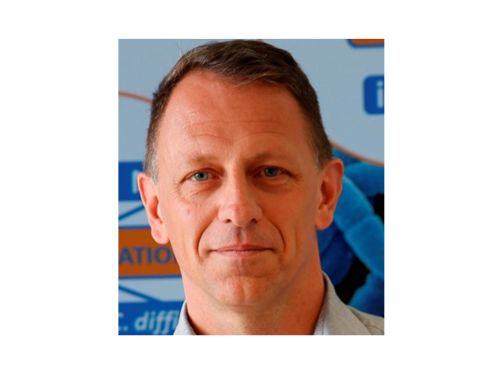
News
Our Interview with Professor Julian Marchesi
Professor Julian Marchesi is Deputy Director and Professor of Clinical Microbiome Research within the Centre for Digestive and Gut Health at Imperial College London. We caught up with him to ask about his research and outcomes from the inaugural International Cancer Microbiome Consortium meeting.
1. Can you tell us about your career path, and how you got to your current position as Professor of Digestive Health?
I started as an environmental microbiologist after completing my PhD in biochemistry. After an MRC fellowship I took up a lectureship in University College Cork, in the Department of Microbiology. At this point I decided to change the focus of my research from the environment to the human gut, using the ‘omic tools that I had developed and used. This change was in 2001 and that was the start of my career in the human microbiome. When I returned to Cardiff University in 2008, I continued my work in this area and was promoted to Professor of Human Microbiome Research at Cardiff in 2015 and a year later to Professor of Digestive Health at Imperial.

2. What led to your interest in the microbiome and cancer?
When I was in Cork we had started to profile bacteria on mucosal surfaces and we were looking at inflammatory bowel disease at the time. Thus I just wondered what the bacterial community would be like on and off a tumour in the sample person’s colon. This work lead us to publish the first study to look at on and off tumour microbiota, and from this we have continued to explore the cancer microbiome.
3. You have been involved in lots of research projects, but could you share with us some of the key projects you have been involved in recently and what were the findings?
We have recently started to discover the mechanism which we believe is responsible for faecal microbiota transplants working to treat C. difficile associated diarrhoea and we are exploring ways to translate that to clinical trials. My work with Prof. Phil Bennett and Dr David MacIntyre on the vaginal microbiome is fascinating, as it explores an ecosystem which is diametrically opposed to the gut system. In the vagina low bacterial diversity is good, while high diversity is bad, this is the opposite scenario to the colon. The bacteria in the vaginal microbiome are closely linked to outcomes in women at risk of pre-term births and also the risk of developing cervical cancer.
4. What other studies would you say have been key to providing us with insights into this field?
The studies coming out of the Gustave Roussy, led by Laurence Zitvogel, are showing some very nice links between the gut microbiota and cancer therapies.
5. Do you think the gut microbiota and microbiome can have an influence on cancer risk?
Definitely – the evidence is building that there are several routes by which the gut microbiota can modulate cancer risk. Individual members can directly be involved in cancer initiation, e.g. E. coli’s ability to make colibactin which damages DNA or the ammensalistic production of hydrogen sulphide, again a genotoxin. Or by offering protection from cancer by producing butyrate from dietary components by fermentation, which can be anti-proliferative and control cancer. We are also a long way from understanding how the gut microbiota interacts with the innate immunity, especially the T cells and how this impacts cancer development and clearance.
6. What plans do you have for future research in this area (or what plans do you know of)?
I believe we need to clear several hurdles to be able to progress the cancer microbiome, these include developing a global atlas of the cancer microbiome and how they interact with different drugs. There is a strong need to pin down the mechanisms by which the gut microbiota interacts with the innate immunity to influence the novel immunotherapies. We are also exploring how we can harness the unique metabolic profiles created by the microbiota on tumours, to identify biomarkers for early detection of colorectal cancer.
7. You were chair of the organising committee for the inaugural International Cancer Microbiome Consortium (ICMC) Meeting that was held in London on 6th September 2017. Can you tell us more about this consortium?
The aim was to start to bring together all the different stakeholders with an interest in cancer and oncology and get them talking to microbiome researchers, to start a dialogue and bi-lateral education, so all groups know the current status of the field and what we should be aiming for in future. Furthermore we hope to help develop some form of road-map which allows us to maximise our resources to understand how we can use the cancer microbiome research to reduce risk and enhance responses to cancer therapies.
8. What were the overarching outcomes of the ICMC?
I think an overarching outcome was that this field is ripe for future development, but now needs a significant increase in investment from all interested parties. There are a handful of scientists working in this area, who are just starting out to describe the cancer microbiome, but let’s not lose sight of the fact that we only really started thinking about a cancer microbiome in 2011, when the first papers were published which described an “on/off” tumour microbiome.
9. What is the vision for the ICMC going forward?
We aim to have regular meetings every 2 years, hosted in different countries, which will take stock of the current developments in this area. We will engage with as many stakeholders as possible to gather this information, and this will include a bench to bedside continuum, and not be an exclusive group. Additionally, we will continue to include a strong educational/engagement focus and that we will repeat the training day activity in future.
- For more information on the outcomes of the ICMC you can read the conference report or visit the ICMC website for latest updates,
Interview conducted: 04/12/17